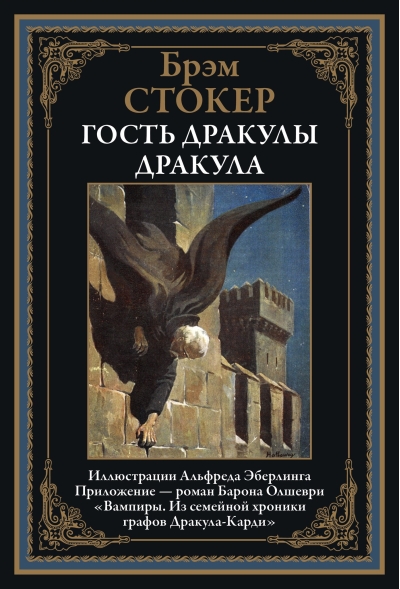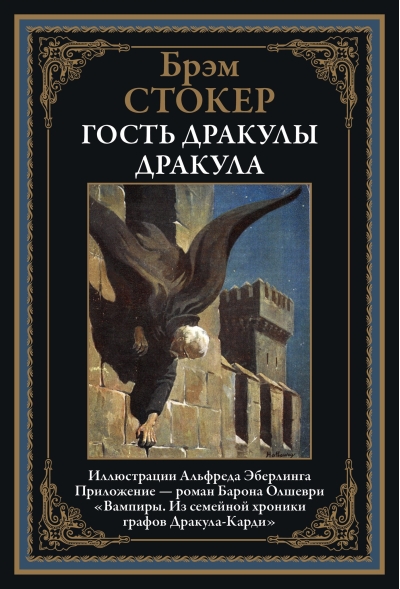Dracula's guest. Dracula
Besides Bram Stoker's iconic novel "Dracula" translated by N. Sandrova and R. Grischenkov, the collection includes the short story "Dracula's Guest" translated by R. Grischenkov, as well as the novel "Vampires. From the Family Chronicle of Count Dracula-Cardi", which is the backstory of Count Dracula described by Stoker. This novel was written in 1912, commissioned by the publishing house V. M. Sablin, by an unknown Russian author who took the pseudonym Baron Olshevri. The book is decorated with black-and-white illustrations by the painter Alfred Rudolfovich Eberling. The novel "Dracula" brought Irish writer Bram Stoker world fame, in the rays of which faded other of his works, and they were written more than two dozen. Interest in ghosts and the afterlife emerged in Stoker in early childhood. The future writer was born in 1847 on the outskirts of Dublin in a Protestant family. A strange ailment did not allow Bram to get out of bed until he was seven years old. At that time, his mother Charlotte read a lot to her son and told him different stories, among which were "horror stories"; they made a particularly strong impression on the boy. Fortunately later Stoker was able to overcome his illness, at the University of Dublin, he even became a good track and field athlete. In London, Stoker met Arthur Conan Doyle, Oscar Wilde and other writers. He began writing his great works when he worked as a manager for the famous British actor Henry Irving. Among them was the novel Dracula, printed in 1897, which later became part of mainstream Western culture. Stoker's prequel, Dracula's Guest, was printed in 1914, two years after the writer's death. In addition to this work, this collection also includes the novel "Vampires. From the Family Chronicle of Count Dracula-Cardi", which is a prequel to Count Dracula. It was written in 1912 by order of the publishing house V. M. Sablin by an unknown Russian author who took the pseudonym Baron Olshevri. There are several versions of who the true author of this intriguing work is. The illustrations for this edition are by the Russian painter A. R. Eberling. R. Eberling. He was born in 1872 in what is now Poland. When he was seventeen years old, he entered the St. Petersburg Academy of Arts. Eberling was a gifted man, he knew several languages and traveled extensively in Europe. Until 1917. Eberling taught at the Drawing School of the Imperial Society for the Encouragement of Arts, worked on book illustrations, did easel painting, and developed the theme of eroticism in art. After the revolution Alfred Rudolfovich continued his pedagogical activity. He created an extensive gallery of portraits of prominent Soviet figures. Among them were the leaders of the country, figures of science and art. The portrait of Lenin on the Soviet banknotes of 1937 issue is his work. On the 1947 and 1957 banknotes this image was used as a watermark. Eberling lived a long life. He died in January 1951 in Leningrad. His paintings and drawings are kept in the
Russian Museum, in other museums and private collections both in Russia and abroad.
See also:
- All books by the publisher
- All books by the author
- All books in the series Library of World Literature











